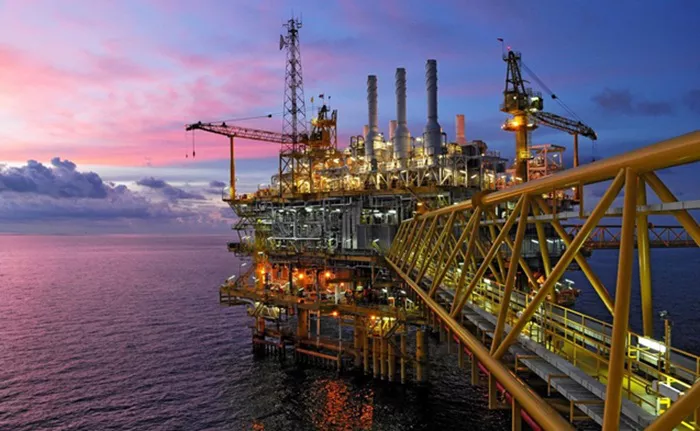When dealing with Contracts for Difference (CFDs) on futures contracts for crude oil, it’s essential to grasp the intricacies of how these financial instruments work, especially concerning delivery and expiration. CFDs are popular among traders because they allow speculation on the price movements of various assets without the need for physical delivery. This detailed guide explores the key aspects of CFDs on crude oil futures contracts, focusing on delivery time, settlement, and practical considerations.
What is a CFD on a Futures Contract
A Contract for Difference (CFD) on a futures contract is a derivative product that allows traders to speculate on the price changes of a futures contract without owning the actual underlying asset. For crude oil, this means you’re speculating on the price of a crude oil futures contract, which is a standardized agreement to buy or sell a specific quantity of crude oil at a predetermined price on a future date.
Delivery and Expiration for CFDs on Futures Contracts
1. No Physical Delivery Involved
CFD Mechanism: Unlike traditional futures contracts, which can result in physical delivery of the underlying commodity (crude oil), CFDs are purely financial instruments. When you trade a CFD on a futures contract, you are not acquiring or delivering physical crude oil. Instead, you’re entering into an agreement with your broker to exchange the difference in the price of the futures contract from the time you open the CFD position to when you close it.
2. Futures Contract Expiration
Expiration Date: Futures contracts have specific expiration dates, which are predetermined by the exchange where they are traded (e.g., NYMEX or ICE). For instance, a futures contract might have an expiration date in December 2024. Traders who hold a futures contract until this date face the possibility of physical delivery unless they close their position or roll it over to the next contract month.
Impact on CFDs: Although CFDs themselves do not require physical delivery, they are based on these futures contracts. The price of a CFD will be influenced by the underlying futures contract’s expiration and the dynamics of rolling over contracts.
3. CFD Settlement
Cash Settlement: The settlement of a CFD is done in cash. When you close your CFD position, the broker settles the contract based on the difference between the entry and exit prices. If your trade was profitable, you receive a payment equal to the profit; if it was unprofitable, you pay the difference. No physical delivery of crude oil occurs.
No Need for Physical Handling: Since CFDs are cash-settled, there is no need for traders to handle or take delivery of the physical commodity, which simplifies the trading process.
4. Rolling Over CFDs
Automatic Rollovers: Most brokers provide an automatic rollover feature for CFDs on futures contracts. As the expiration date of the underlying futures contract approaches, the broker will automatically roll over your CFD position to the next available futures contract. This process involves closing your position in the expiring contract and opening a new one in the next contract month.
Rollover Costs: Be aware that rolling over a CFD may involve additional costs or adjustments. Brokers might apply a small fee for the rollover process or adjust the contract’s price based on the difference between the expiring and new contracts.
See also: Which Useful Substances Are Obtained from Crude Oil?
Practical Considerations
Expiration Awareness
Monitoring Dates: Keep track of the expiration dates of the underlying futures contracts. Even though CFDs themselves don’t involve physical delivery, the underlying futures contract’s expiration can impact the CFD’s pricing and your position.
Broker Policies: Each broker has its own policies regarding rollovers and contract expirations. Familiarize yourself with these policies to understand how they might affect your trades.
Trading Strategy
Contract Rollovers: Consider how contract rollovers might impact your trading strategy. Price differences between expiring and new contracts can create opportunities or risks that you need to manage.
Market Conditions: Be aware that market conditions and liquidity can affect the pricing of futures contracts and, consequently, your CFD. Ensure that you’re comfortable with the potential price volatility associated with rolling over contracts.
Costs and Fees
Transaction Costs: Be mindful of transaction costs associated with CFD trading, including spreads, rollover fees, and any other charges your broker may apply.
Brokerage Fees: Different brokers may charge different fees for CFD trades and rollovers. Check your broker’s fee structure to avoid unexpected costs.
Conclusion
When trading a CFD on a futures contract for crude oil, it’s crucial to understand that CFDs do not involve physical delivery of the underlying asset. Instead, they are settled in cash based on the price movements of the futures contract. Futures contracts do have expiration dates, but CFDs are designed to simplify the trading process by eliminating the need for physical handling. Understanding the mechanisms of CFD settlements, automatic rollovers, and associated costs helps in making informed trading decisions. By being aware of expiration dates, broker policies, and the financial implications of rollovers, traders can effectively manage their CFD positions and optimize their trading strategies in the dynamic world of crude oil futures.
Related Topics:

